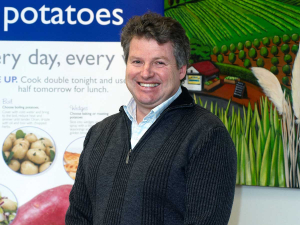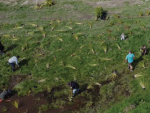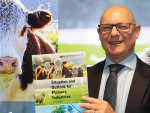A project to boost vegetable growers’ environmental efforts has received funding from the Ministry for Primary Industries (MPI).
The funding is in addition to $2.8 million already invested by industry into Sustainable Vegetable Systems (SVS), a four-year project focused on improving crop nutrient management for the growing of potatoes, onions, brassicas, butternut squash, carrots, and leafy greens.
MPI is investing in the project from the Productive and Sustainable Land Use package, aiming to promote farming and growing practices that deliver more value and improved environmental outcomes.
The SVS project was established by Potatoes NZ, partnering with Horticulture New Zealand and vegetable groups Onions New Zealand, Vegetables New Zealand, Processed Vegetables New Zealand, and NZ Buttercup Squash, under their umbrella of the Vegetable Research and Innovation Board.
“This project will give growers the ability to accurately manage nutrient flows, while meeting demand for quality produce, meaning better environmental outcomes,” says Potatoes NZ chief executive, Chris Claridge.
MPI’s director for land, water and climate policy, Charlotte Denny says having robust tools to measure their environmental impact will help growers operate more efficiently and reduce nitrate leaching.
“This is an important industry-led programme, and the scientific data gathered will inform and help develop decision tools for growers to support more sustainable growing practices”, says Denny.
Plant & Food Research is undertaking the work to quantify and model nitrate leaching. The project will engage with vegetable growers around New Zealand, providing tools to help them apply effective nitrate management techniques suited to their land and operations.
The Sustainable Vegetable Systems project will have nine commercial field sites across the country in Canterbury, Hawke’s Bay, Horowhenua, Waikato and Pukekohe as well as trials at Plant & Food Research facilities in Lincoln and Hawke’s Bay.
“This project will enable growers to assess which management techniques will best reduce their risk of nitrate leaching, so they can confidently make changes in practice,” says Claridge.


















